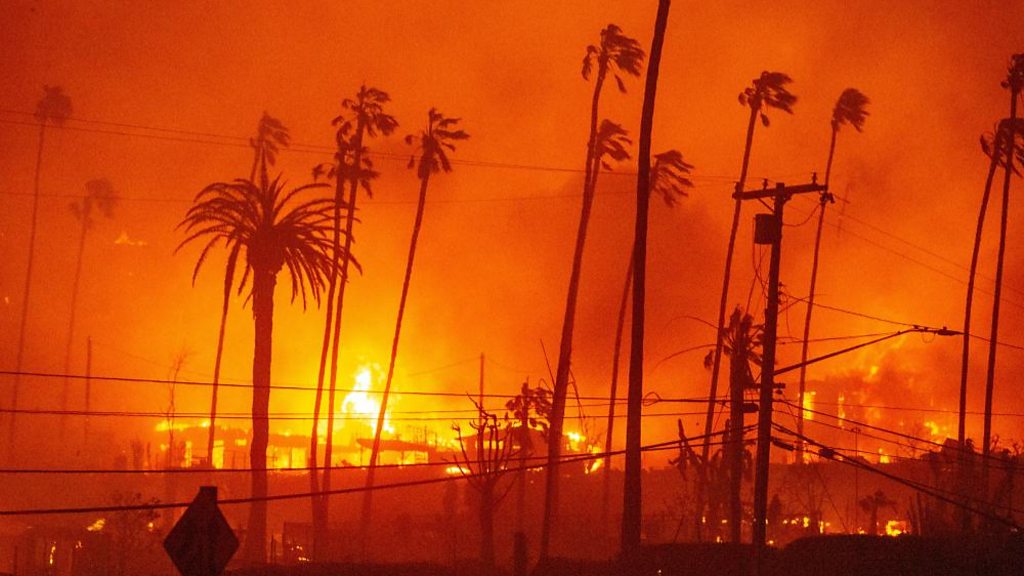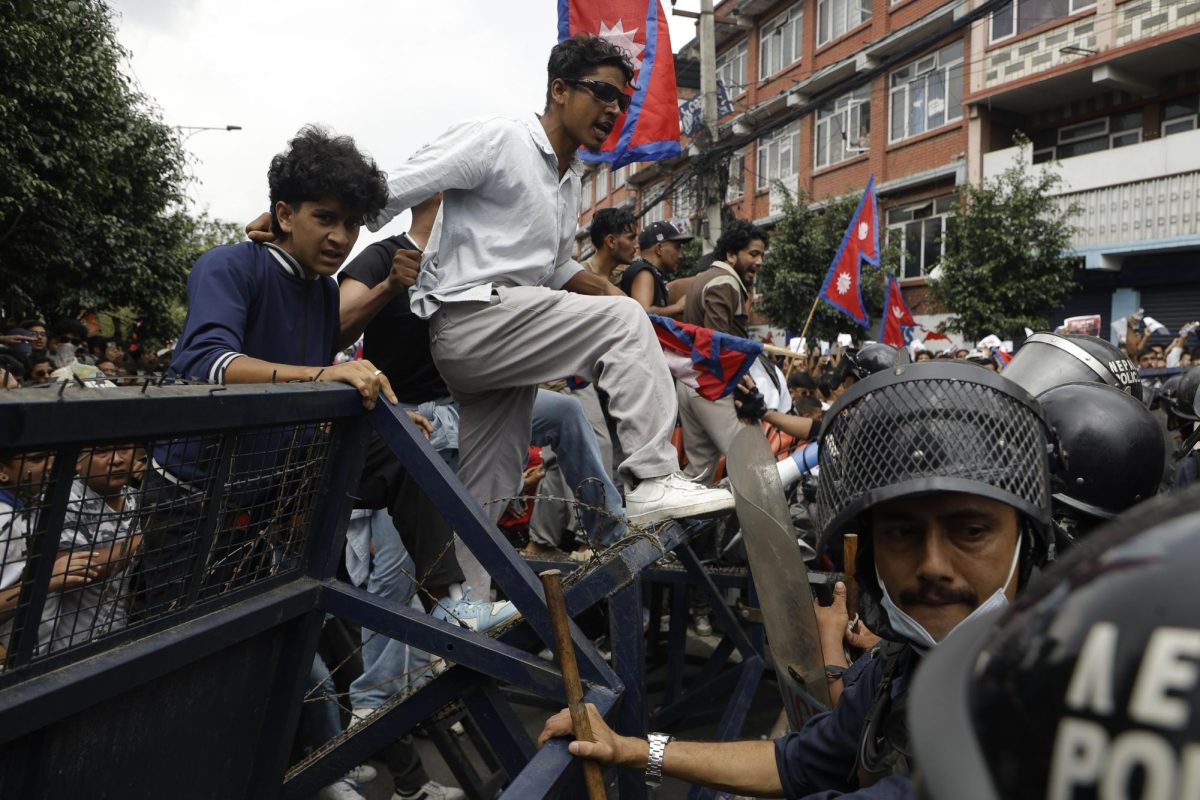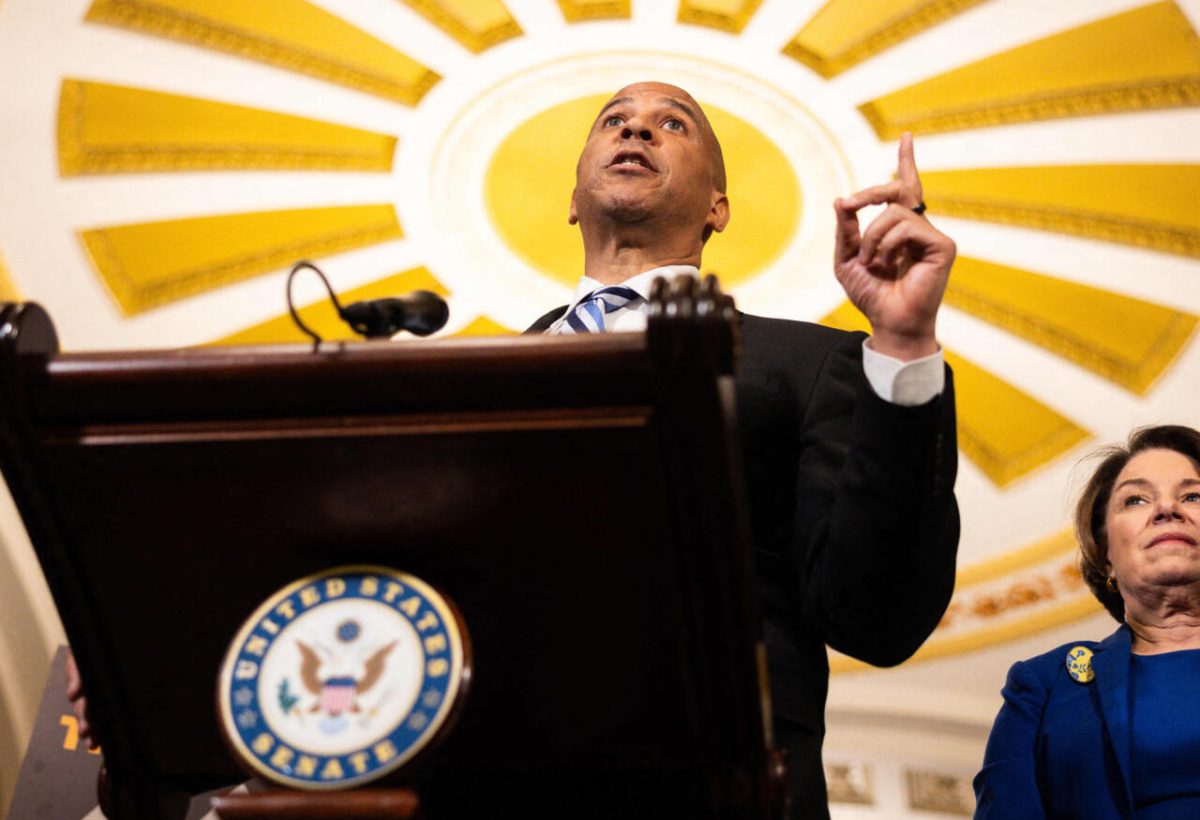Since January 7th, Los Angeles has seen multiple large and powerful wildfires, sweeping over 40,000 acres of California land. The Pacific Palisades fire, the first of the fires, resulted in unparalleled devastation, marking the most destructive fire in Los Angeles history. This fire reportedly started at around 10:30 a.m., reason unknown, spreading only 10 acres. Yet fueled by severe drought (the driest nine-month period) and up to 80 mph wind gusts, the fire quickly spread 200 acres in 20 minutes. By the end of the day, the fire had reached almost 3,000 acres. Recent reports show that the Pacific Palisades fire destroyed most of the Palisades neighborhoods as well as neighborhoods in Malibu and Topanga, covering 6,051 demolished structures and 788 damaged structures.
The Eaton fire, the other primary fire in Los Angeles, also began later that evening due to sparks from a high voltage transmission tower, at approximately 6:30 p.m. in the Altadena area, northeast of the Palisades fire. Only six hours later at around 12:00 a.m. the next day, the Eaton fire had covered over 1,000 acres, fueled by the same aggressive wind gusts that powered the Palisades fire. By January 8th, the land covered had doubled in size, nearing 2,227 acres, remaining 0% contained. As of January 20th, the Eaton fire was 87% contained with over 14,000 acres destroyed, and the Palisades fire is 59% contained with almost 24,000 acres destroyed. The total confirmed death toll of these two fires is 27 people, with many others missing. The cause of these fires comes with profound social and economic consequences. Insured property losses, including homes, commercial buildings, and businesses, are estimated to approach $45 billion, with total economic losses reaching double that when accounting for the uninsured assets. Local businesses have suffered immensely, not only due to physical losses but also to the drastic decrease in business due to the widespread evacuations of the city because of the fires. The entertainment industry, a cornerstone of the LA economy, has not been spared from these fires either. Many movie and television productions have been canceled or postponed, and major events such as the Grammy Awards are subject to cancellation. Additionally, many homeowners are grappling with massive financial burdens due to underinsurance and policy cancellations. Miriam Cortero, a Los Angeles mother in Altadena, lost her newly renovated home in Eaton worth $1.2 million, yet is only being provided $200,000 in insurance coverage. This leaves her with a $800,000 mortgage and no home or place to live. Furthermore, State Farm canceled the insurance coverage of roughly 1,600 Pacific Palisades homeowners in July, leaving them at risk during these fires.
The emotional toll left on Californians after these fires is immeasurable. Many families had little time to evacuate their homes before the fire spread, and many left their precious personal belongings that cannot be replaced, leaving people of all ages in shock and grief. The feeling of being involved in a fire is horrifying.Yet, as families begin to rebuild, they will face challenges such as competition for building materials and labor. The overlapping of reconstructing homes and property across the country is straining supply chains and delaying the restoration of these neighborhoods.
As Los Angeles residents grapple with the impact of these devastating fires, the road to recovery is long and unpredictable. Families, businesses, and communities must navigate financial struggles, emotional trauma, and other major hardships in their time of rebuilding. At Taft, Every Mind Matters has been raising money for wildlife releif and The American Red Cross. These events have included a football watch party as well as a dress-down day







